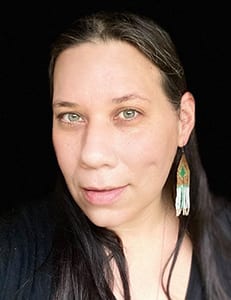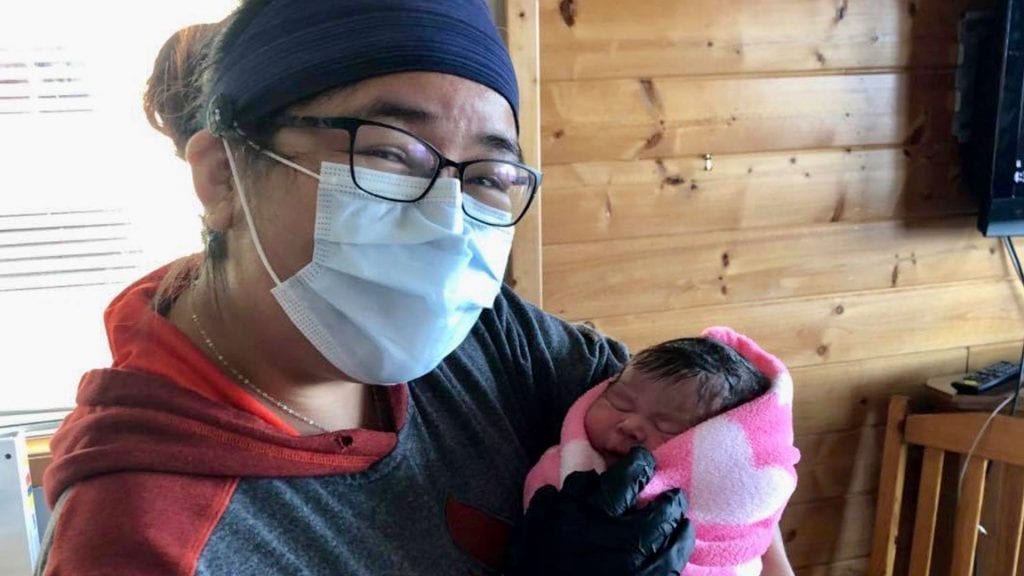
Doula Roberta Williams, of the Gwa’sala-’nakwaxda’xw Nations, with the first baby born on Kwagu'ł territory in 30 years. Photo courtesy: Debbie Hunt.
The first birth Indigenous doula Roberta Williams attended also happened to be the first child born in Kwagu’ł territory in over 30 years. Williams, 23, is one of 17 Indigenous doulas trained last year, in what is a new wave of traditional birth knowledge and reclamation.
“To have a birth in your traditional territory was so surreal. The energy in that room felt like no other. My heart was so happy,” says Williams, reflecting on her first birth as a doula. “I can tell our ancestors were watching over smiling.”
Doulas, or “birth workers,” “birth supporters,” or “birth aunties,” are trained and certified to provide full-spectrum (mental, emotional, physical, spiritual) birth support to the mother during pregnancy, labour, birth, postpartum and beyond. This support complements the midwife’s role, where focus is on delivering a healthy baby.
Training to become a doula has enabled Williams to be a part of “bringing birth back home,” which is something she thinks “should have been done a long time ago.”
“It’s something our ancestors did,” Williams tells IndigiNews. “We’re bringing back our traditions. I have hope for our future.”
The Barriers
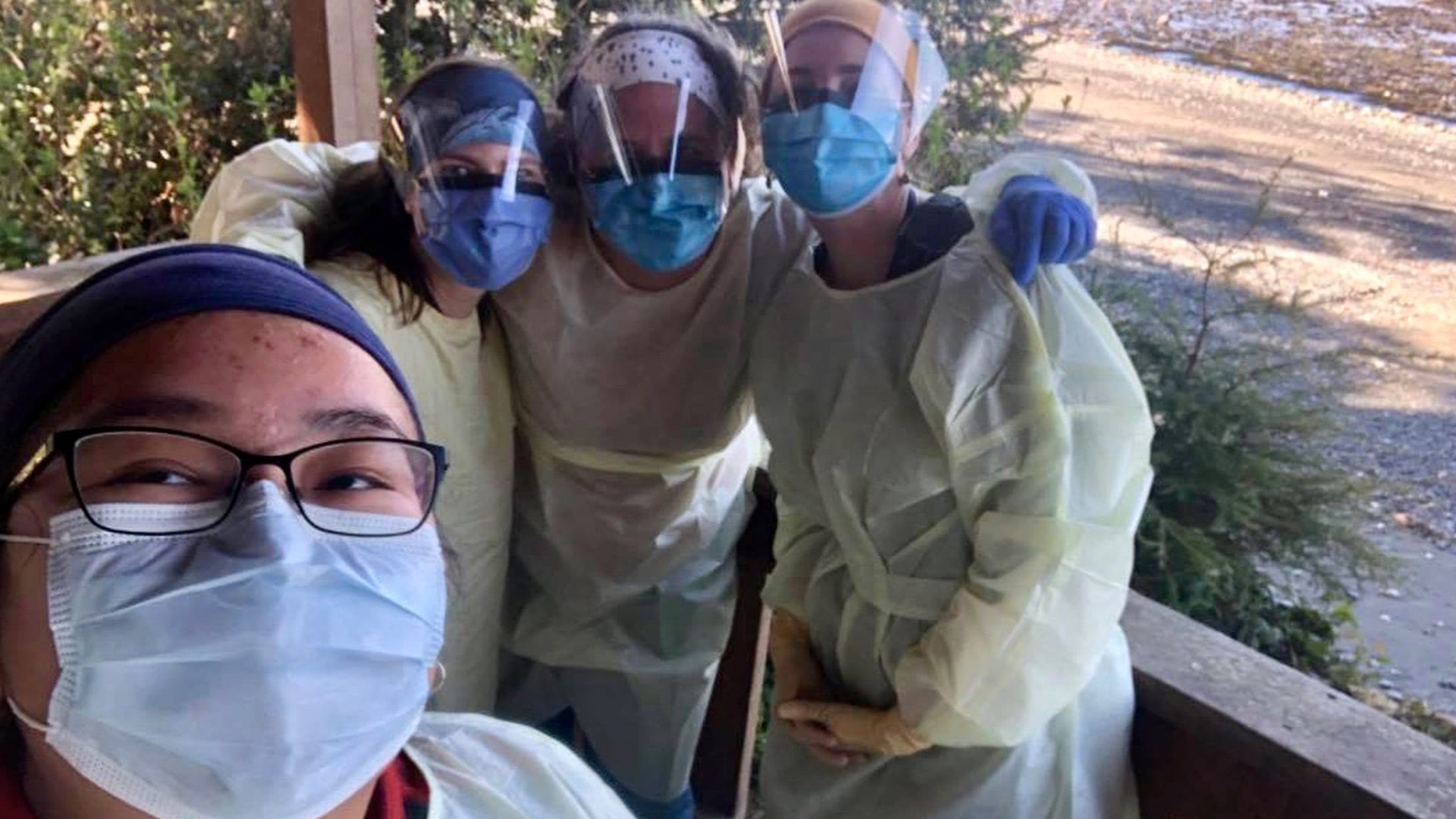
While Kwakwaka’wakw women traditionally supported birth at home and within their families, it has been decades since this has taken place. Due to many complicated factors, it isn’t always easy or accessible for parents to birth at home in a safe and supportive way.
North Vancouver Island is home to a dozen First Nations of the Kwakwaka’wakw Peoples. These include some communities only accessible by boat, float plane, helicopter, or by ferries that pass through chains of islands.
Everyone living within this massive region has had to travel to Port Hardy or Port McNeil (both located on the northern tip of Vancouver Island) for health care services. Depending on where people are traveling from, this could be a full day or even multiple-day trip requiring time and resources.
In 2002, two Indigenous perinatal deaths occurred. This was followed in 2003 by an infant death during transport to Campbell River Hospital. Following these tragic losses of life, birthing services were shut down in Port Hardy and Port McNeil hospitals, according to Marijke de Zwager, one of two midwives with the First Nations Health Authority (FNHA).
“After that, all births would happen in Campbell River three hours south, except for unexpected emergencies,” says de Zwager. She’s non-Indigenous, and recognizes the systemic racism that’s within the healthcare system, she adds, which needs to be consciously and consistently addressed.
Port McNeil was reinstated by the Vancouver Island Health Authority a few years later she explains, but a strict criteria restricts many families from being eligible for birthing at the hospital.
First-time birthing parents don’t qualify, de Zwager says.
Eligible birthing parents have to be “healthy low-risk” people, which restricts a pregnant person with any other health conditions. You’re considered higher risk if you’re carrying twins, have had a previous cesarean-section, she explains, narrowing the list significantly.
“Only about four to five people a year were planning to deliver with Port McNeill’s physicians,” she says.
To help address this gap of available service, in 2017, FNHA started a project called the Kwakwaka’wakw Maternal Child & Family Health project, de Zwager explains. Their goal was to increase the safety for families and provide better access to maternity care.
Through this project, de Zwager got support to better support people birthing closer to home and doing their care closer to home.
“I technically only do home births where it’s close enough to one of the hospitals (Port McNeill or Port Hardy) and hospital births.”
“I’m really excited about being able to offer people who are low risk, to just stay home and have their babies here,” says de Zwager.
While she is happy to be able to help make birth support more accessible for those eligible, de Zwager feels that the region and demand are more work than two midwives are able to cover.
“I love being a midwife,” says de Zwager. “But I also think that women here deserve to have their own midwives.”
Roberta Williams agrees, which is why she decided to attend the doula training last year in Port Hardy, which she found out about through de Zwager. The Indigenous-led training was designed for Kwakwaka’wakw communities by the ekw’í7tl doula collective.
Army of Doulas
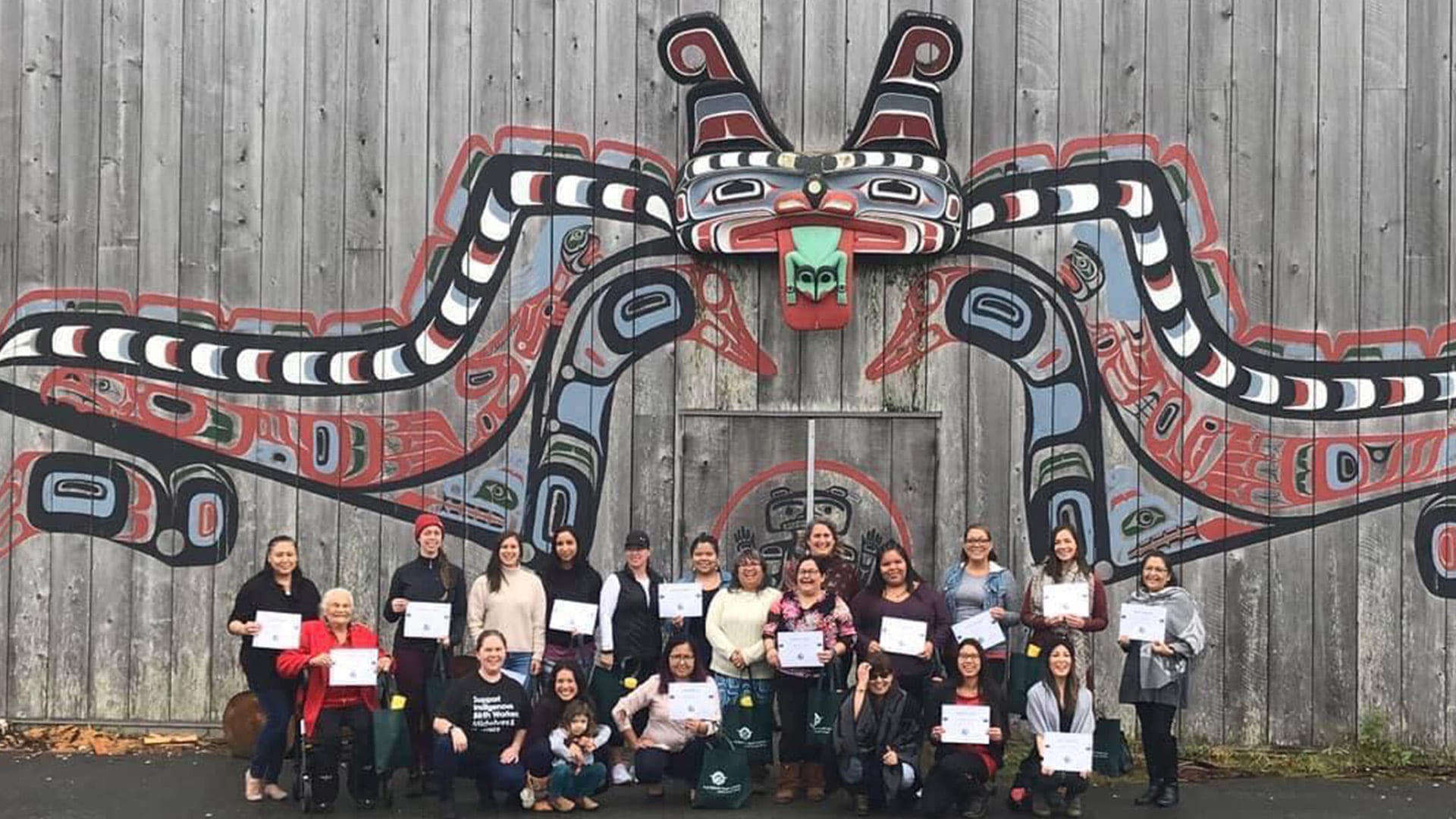
Last November, the ekw’í7tl doula collective hosted a training in Tsax̱is (Fort Rupert). The collective is a network of Vancouver-based Indigenous doulas who work with midwives, doctors and other birth workers to bring parents full-spectrum care.
Seventeen Indigenous participants, the majority Kwakwaka’wakw, attended the training.
The work differed from other doula certification training programs across Canada, in that facilitators brought in local elders to share their traditional knowledge and perspectives.
Williams said they learned more about their traditional practices, such as birthing on a cedar mat.
“Someone would weave a Cedar mat for the mom,” says Williams, “You would step on that while you’re giving birth or you sit on it and then there are different traditions for different people.”
Laura Joe was another Kwakwaka’wakw doula trained. She says she too looks forward to passing along traditions she learned from Elders who assisted with the training.
“One of the protocols is that you can’t weave the cedar mat yourself,” Joe adds. “The weaving could interfere with the umbilical cord and get it knotted or tangled up — it has to be woven by somebody else for you to use.”
Jenny Johnson, the mother whose birth Williams attended in Kwagu’ł territory, says the tradition reflects a legend of a chief who distributed cedar to his people.
“To honour his wife and his new born child, to celebrate,” Johnson adds. “That’s why [stained] cedar bark is given out at potlatches. The red color is the color of the blood of the lifegiver.”
Williams feels doulas also serve as advocates for those who want to include traditional practices in their births. She says the training included learning about “medicine that would be used to help while you’re in labor, like biting down on balsam bark,” which helps with contractions.
The doula curriculum covered “full spectrum doula training,” Williams explains, which includes supporting parents in “trying to get pregnant, pregnancy, labor delivery, postpartum, and sometimes end of life, miscarriage.”
After the intensive training, the special cohort of Indigenous were eligible for grant funding as a birth support worker. Both Joe and Williams have even been inspired to become midwives.
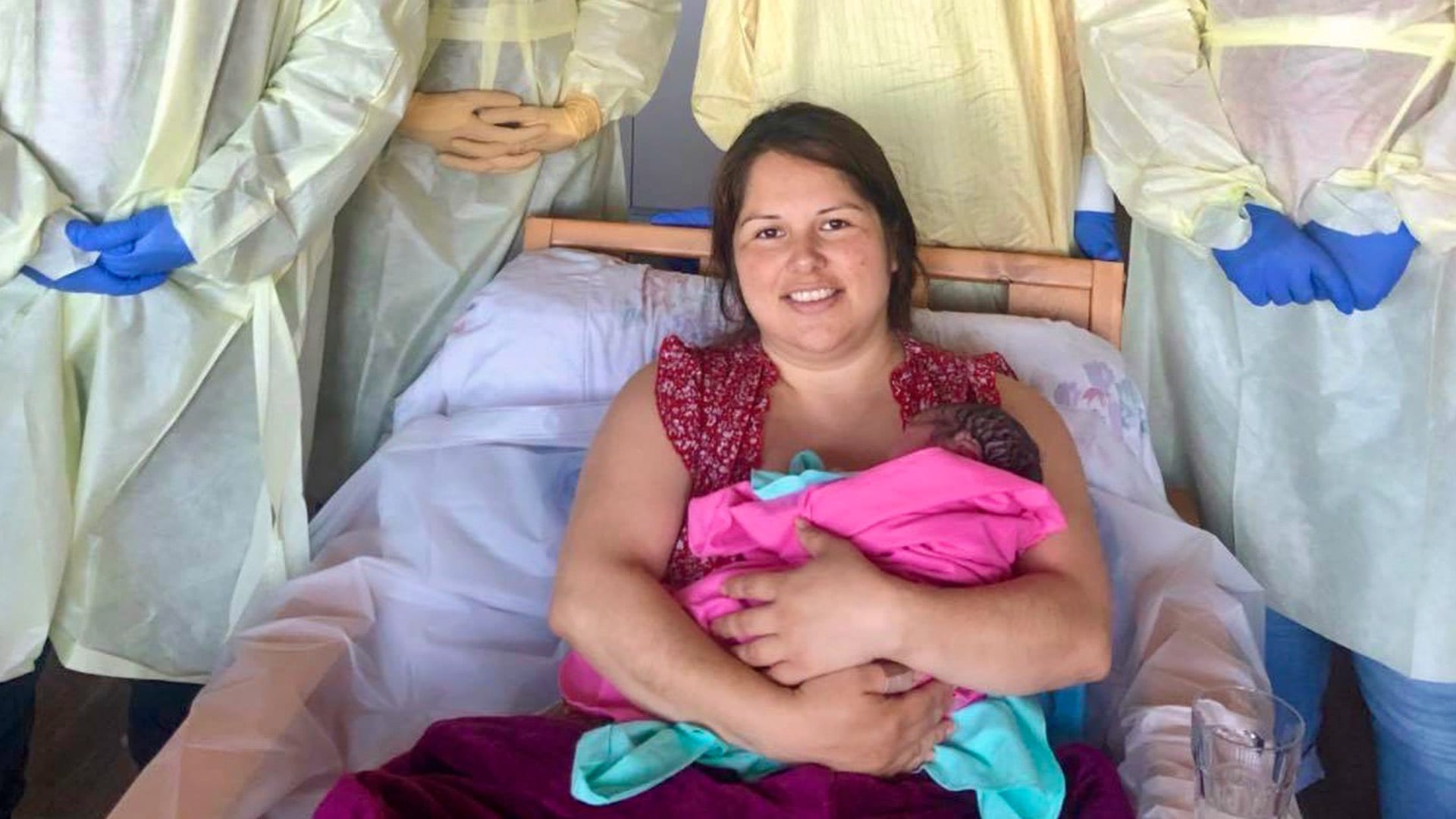
Old ways forward
That first birth that Williams attended felt like a confirmation that she was on the right path, she remembers.
“This was the first of many home births in traditional territories,” says Williams.
“We need to go back to our traditional ways,” says Williams. “I would like to have more home births and more traditional practices involved. That’s something that happened before, and we lost to colonization.”
De Zwager, who works for FNHA to better support folks accessing their care and birthing closer to home, hopes the Medical Services Plan, Vancouver Island Health Authority and FNHA can work together to support lasting community-driven solutions.
“When there’s only death witnessed in a community, it can weigh very heavily on the community,” de Zwager shares. “But now that we’re having births again, we’re bringing back birth to the circle of life.”
Williams had planned on becoming a nurse, but de Zwager encouraged her to consider midwifery. At first, she declined, she says, but two days before the doula training, something made her reconsider.
After her first experience supporting the birth at Cluxewe, Kwagu’ł territory, she said “you’re right, I want to be a midwife.”
When Williams announced her new path to her family, they told her she was following her Granny’s footsteps.
“My granny and all her sisters were midwives,” she says proudly. “They delivered all the babies in the community…and I had no idea about that until after.”
“In the past our people never trusted the hospital,” says Williams. “So they had their babies in the home. And my grandma was the one who helped them with this.”
For Williams, her journey into birth work feels like an act of reclamation, as she returns to the path travelled by the matriarchs before her.
Our series on reproductive health access is made possible in part with funding from First Nations Health Authority (FNHA) and Thunderbird Partnership Foundation. Their support does not imply endorsement of or influence over the content produced.




